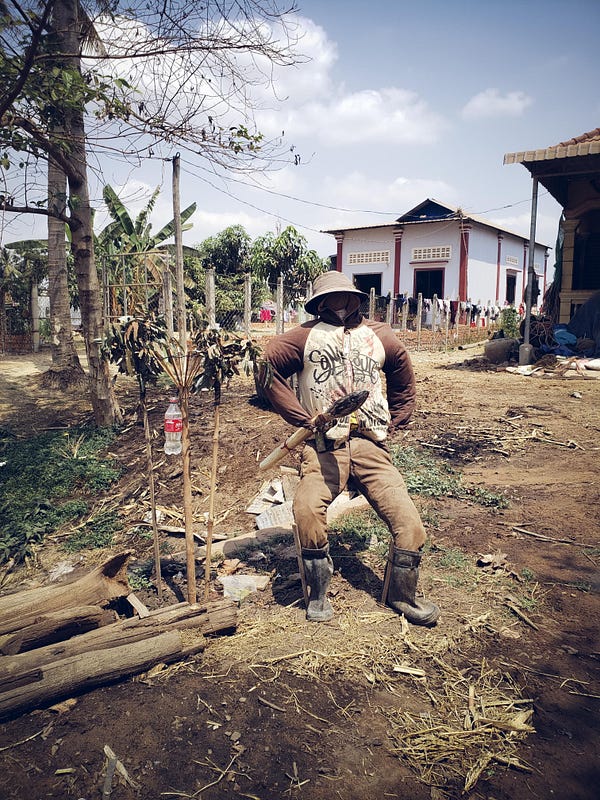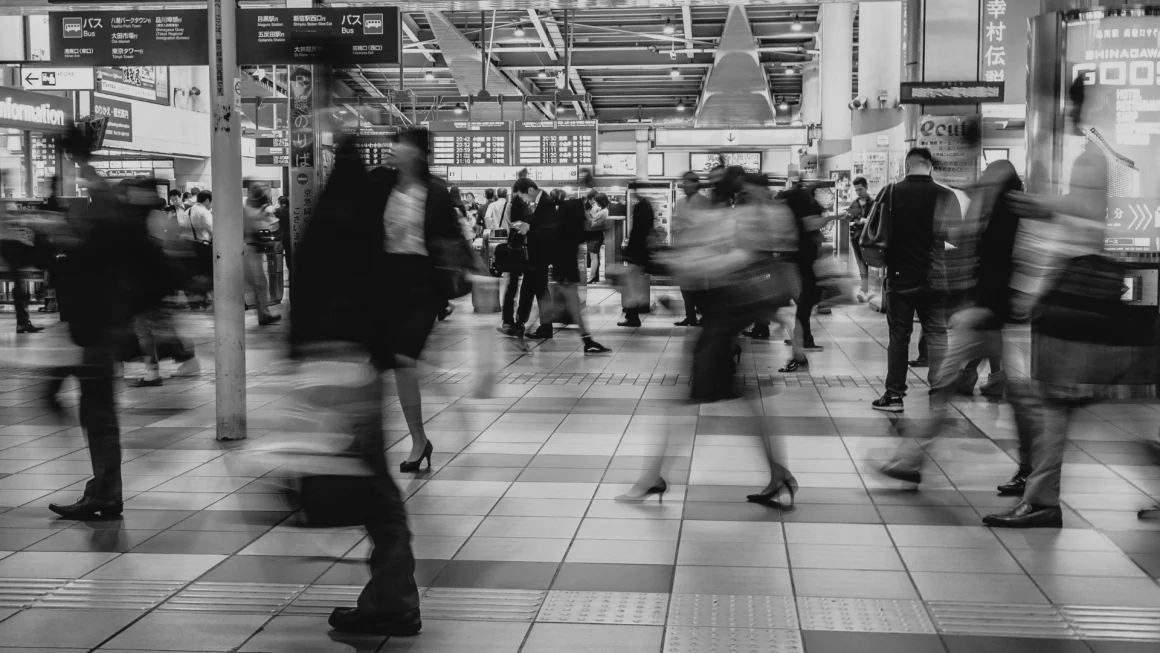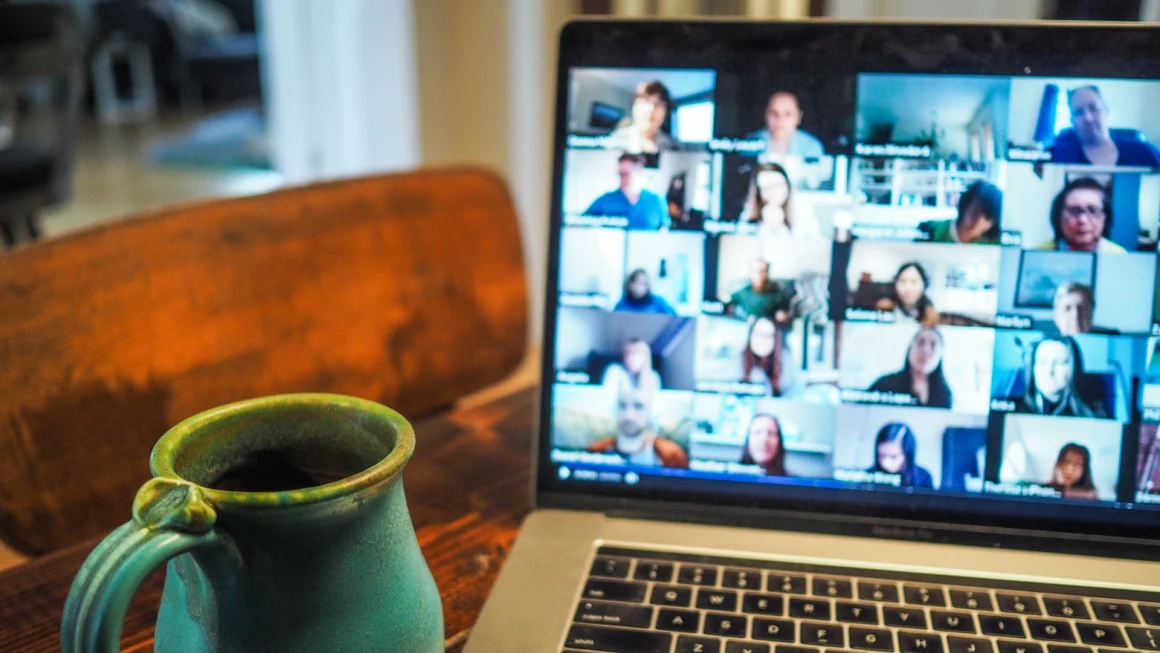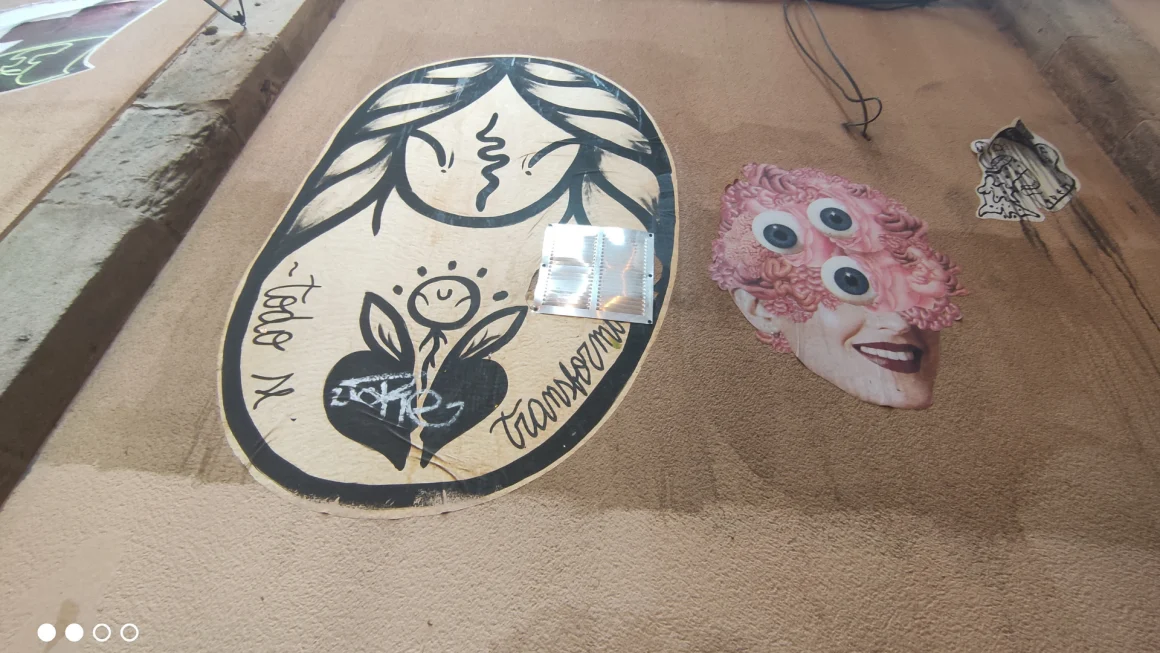Regular activities have remained temporarily frozen. Like birds suspended in mid-flight. For many of us, travel was one of those regular activities. We kept on flying like tireless birds. Experts assure that one of the reasons that COVID-19 has been transmitted so quickly is for these incessant trips and that, among many other actions, in the future we will rethink how we travel, especially in regards to flights. Meanwhile, at home, we can continue flying, we can continue traveling in a figurative sense.
The Argentine plain (La Pampa) is immeasurable, kilometers and kilometers of extension, of fields, cows and crops. Endless horizons and a special light. From time to time, you find scarecrows. Effective for what locals say. It is strange how a simple “figure” manages to dissuade birds and helps preserve crops. As a child I have looked between amazed and fearful at these scarecrows, so real from a distance and so grotesque from nearby. Unexpectedly, a few days ago I came across them again, this time from the other side of the world. Different though from those of my childhood.

In the Cambodian countryside, since the pandemic, peculiar scarecrows are appearing. Photographed by Chris Schoenmbohm, School Director and Co-founder de Kulen Outreach, an NGO doing a fantastic job for the local community, I was wide-eyed to see “illness effigies” that are popping up everywhere over there. Eerie and fascinating, they’re meant to fool the spirits into making the effigy sick instead of the household, Chris explains. This time around they are not birds that are trying to be kept away, it is a virus that has spread its wings, flies over us all and scares us: humans. Paradoxes of life.
What does the future of travel hold for us? Will we spread the wings again? WTTC just published that once the outbreak is over, it could take up to 10 months for the industry to recover. There are already several rigorous initiatives from the academic world analyzing the impact of this crisis in the tourism sector such as Travel & Tourism Transformed, Regional Studies Association, Travel & Tourism Research Association or interesting articles like Sara Pastor’s that explains how data helps tourism companies in times of crisis.
In all certainty, in a few months we will travel again. Hopefully in a more responsible and sustainable way. In the meantime, let’s follow the advice of Visit Portugal, Portugal’s tourism promotion agency, whose wonderful campaign ‘Can’t skip hope’ invites us to stop travelling temporarily, to collect ourselves in our nests:
It’s time to stop
It is the perfect time not to visit anything
It’s time to stop
Natures, landscapes, beaches and monuments aren´t going anywhere, they will still be there waiting for a better time to be lived…
A better time will be there and there we will be, when it is all over. We will be reborn from the ashes like the phoenix to spread our wings and fly high, very high. Without forgetting that, as stated by Pepe Mujica, former President of Uruguay in a recent interview ‘… the virus is a challenge. Biology reminds us that we are not the absolute owners of the world as it appears to be”. We are not and if we want to live traveling it is essential to understand, today more than ever, that is a must to travel respecting the land, its flora, its fauna and its people. During these days let us fly only with our imagination.






